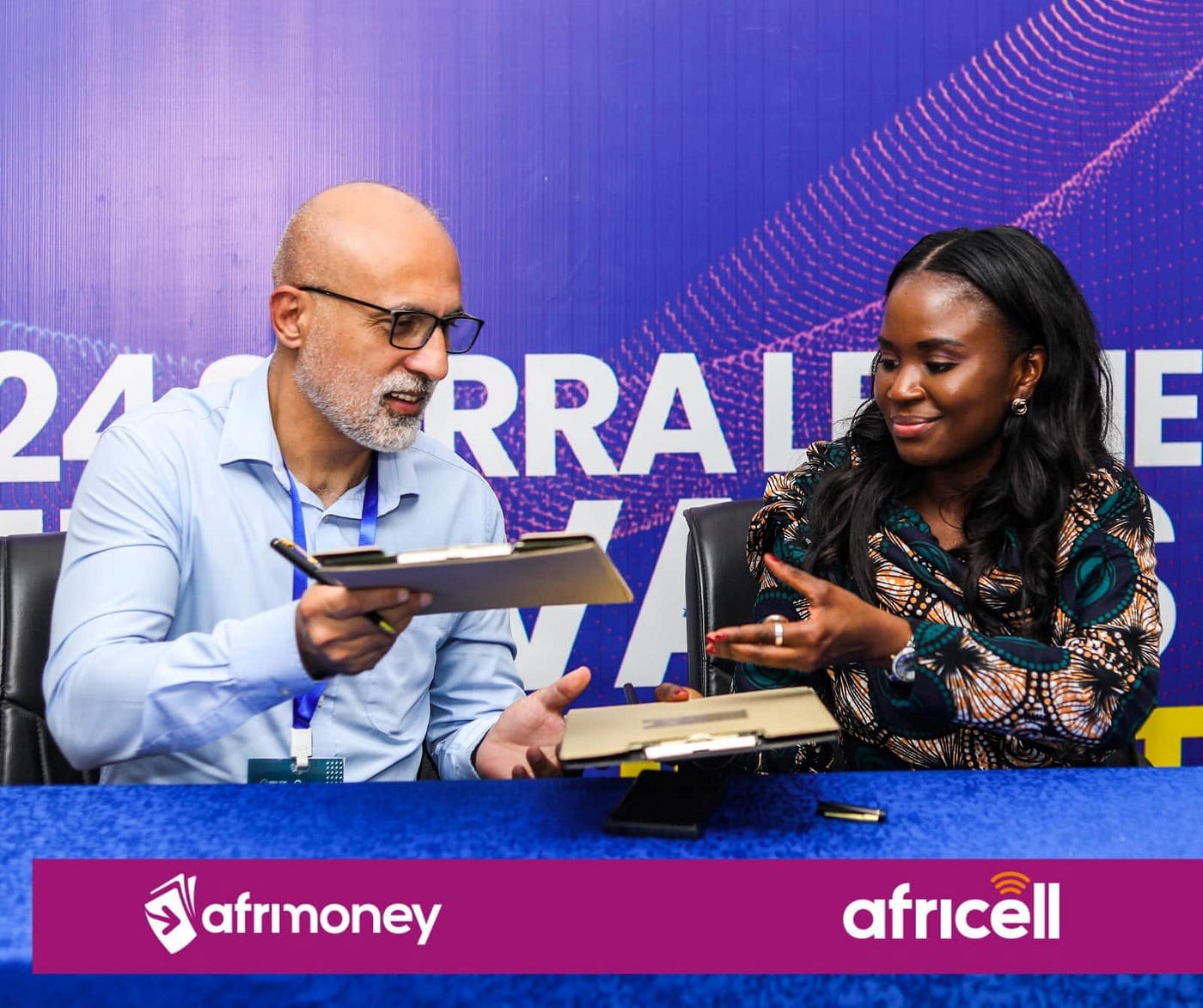Access to this content is exclusively reserved for subscribers.

Africell Sierra Leone, in partnership with the Ministry of Communication, Technology, and Innovation, has announced plans to construct a state-of-the-art data center. This groundbreaking initiative aims to transform Sierra Leone’s network infrastructure while laying the foundation for the country’s integration into the emerging Web3 ecosystem. As a critical component of Sierra Leone’s digital transformation, the data center will enhance connectivity, boost performance and accelerate the adoption of decentralized technologies across the country.
Africell’s proposed data center will feature cutting-edge technologies designed to manage vast data volumes while maintaining high levels of security, performance and reliability. At its core, the data center will house high-performance servers, robust backup systems and expanded bandwidth, enabling seamless data processing and storage. This advanced infrastructure will serve as the backbone for improving cloud computing capabilities and ensuring the delivery of essential digital services.
Low-latency capabilities, a key feature of the new data center, will allow for faster data transmission and smoother user experiences across various platforms. This is especially vital for Web3 technologies, including decentralized applications (dApps), blockchain networks, and cryptocurrency systems, which depend on real-time interactions and high-speed data processing.
Africell’s data center is also poised to significantly strengthen Sierra Leone’s network infrastructure by addressing three critical areas: bandwidth, latency and reliability. These enhancements will directly support the growth and integration of Web3 technologies in the country.
Furthermore, the new data center will drastically expand available bandwidth, enabling faster data transfer rates—a crucial factor for Web3 applications. As decentralized finance (DeFi), blockchain systems and smart contracts rely on processing large volumes of data quickly and securely, Africell’s improved infrastructure will facilitate these operations seamlessly. This will ensure that Sierra Leone can support the growing demand for digital financial services and blockchain-based transactions.
Low latency is essential for real-time transactions and interactions on decentralized platforms. Africell’s data center will focus on minimizing latency, which is critical for applications like non-fungible token (NFT) trading and other blockchain-based digital asset exchanges. Faster response times will enhance the user experience, making it easier for Sierra Leoneans to engage with Web3 platforms, participate in blockchain transactions and interact with decentralized ecosystems.
Network reliability is another key focus of Africell’s initiative. By implementing redundancy systems, the data center will reduce the likelihood of outages and ensure uninterrupted service. This is particularly important as Sierra Leone positions itself as a digital hub in Africa. Reliable connectivity will foster confidence in the country’s digital infrastructure, encouraging further investment and innovation in the tech sector.
Africell’s data center will play a pivotal role in Sierra Leone’s integration into the Web3 ecosystem. With enhanced infrastructure, the country is better positioned to embrace the decentralized technologies that are reshaping the global digital landscape. Key areas of impact include:
Expanding Accessibility: One of the biggest obstacles to Web3 adoption in Sierra Leone, as in many parts of Africa, is the lack of reliable high-speed internet. Africell’s data center will help bridge this digital divide by providing the necessary infrastructure for fast and stable internet access, even in remote areas. This will enable more Sierra Leoneans to explore decentralized applications and benefit from blockchain-based services, thereby driving digital inclusion.
Lowering Costs and Improving Affordability: As internet access improves, the cost of connectivity is expected to decrease. This will democratize access to Web3 technologies, allowing underserved populations to participate in decentralized finance, NFTs and other digital innovations. By reducing barriers to entry, Africell’s data center will help unlock new economic opportunities and empower communities to engage in the digital economy.
Enhancing User Experience: To thrive in the Web3 space, users need fast, reliable and intuitive digital platforms. Africell’s improved network capabilities will ensure that users can easily navigate cryptocurrency exchanges, NFT marketplaces and other decentralized platforms, creating a smoother digital experience for all. This enhanced user experience will be key to driving Web3 adoption in Sierra Leone.
Despite the immense potential of Africell’s data center, several challenges must be addressed for the full benefits of this digital infrastructure to be realized.
It must be noted that building and maintaining a world-class data center requires significant financial resources and although Africell’s collaboration with the Government mitigates some of the costs, however, the full scale of network improvements may take time to implement due to potential budgetary constraints. Additionally, some areas of the country may experience delays in accessing upgraded services.
As Web3 technologies become more widespread, there will be a growing need for regulatory oversight, particularly concerning cryptocurrencies and blockchain transactions. Sierra Leone must develop a regulatory framework that balances innovation with security and compliance. This will be critical to ensuring the safe and responsible growth of decentralized technologies in the country.
While improved infrastructure is a key enabler, the success of Web3 adoption will depend on the public’s ability to understand and use the technology. Digital literacy programs must accompany the rollout of Web3 platforms to ensure that Sierra Leoneans, especially those in rural areas, can participate fully in the digital revolution.
Africell’s data center is more than just an upgrade to Sierra Leone’s network infrastructure—it represents a significant leap forward in the country’s digital transformation. By addressing critical challenges like bandwidth, latency and reliability, the data center will provide the foundation for Sierra Leone to embrace Web3 technologies and lead the way in Africa’s digital revolution. With the right support, including sound regulatory policies and robust digital literacy initiatives, Sierra Leone has the potential to become a hub for blockchain innovation, decentralized finance, and other Web3 applications. Africell’s data center will play a crucial role in realizing this vision, positioning the country at the forefront of Africa’s digital future.

